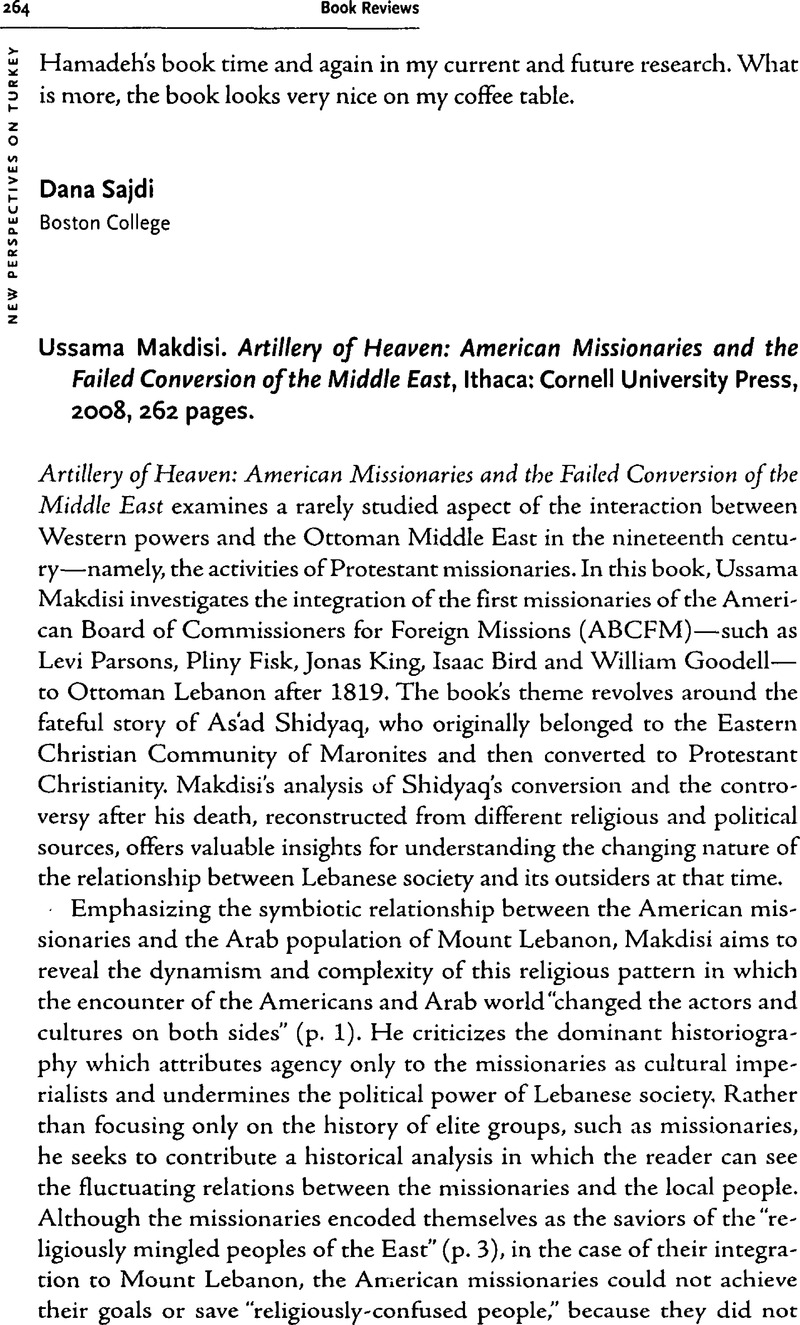No CrossRef data available.
Published online by Cambridge University Press: 21 July 2015

1 “Of all the founding missionaries—Parsons, Fisk, Goodell, and Bird—he was the most comfortable in Arabic; by 1825 he could write in the language and expressed himself fluently in it […] King readily adapted his outer habits to gain admirers and converts. And yet for all his immersion in local culture, King was the most reluctant to compromise with it, and ultimately the least accommodating to its constraints.” (p. 101).
2 Butrus al-Bustani wrote an Arabic version of the story of Shidyaq's conversion and death, entitled “The Story of As'ad Shidyaq.” Like him, al-Bustani, was a Maronite who converted to Protestanism. (pp. 180-181).
3 “Reconstructing the Nation-State: The Modernity of Sectarianism in Lebanon,” Middle East Report, no. 200 (1996)Google Scholar; “Reclaiming the Land of the Bible: Missionaries, Secularism and Evangelical Modernity,” The American Historical Review 102, no. 3 (1997)Google Scholar; Culture of Sectarianism: Community, History, and Violence in Nineteenth Century Ottoman Lebanon (London: University of California Press, 2000)Google Scholar; “Ottoman Orientalism,” The American Historical Review 107, no. 3 (2002)Google Scholar; “After 1860: Debating Religion, Reform, and Nationalism in the Ottoman Empire,” International Journal of Middle East Studies 34, no. 4 (2002)Google Scholar.